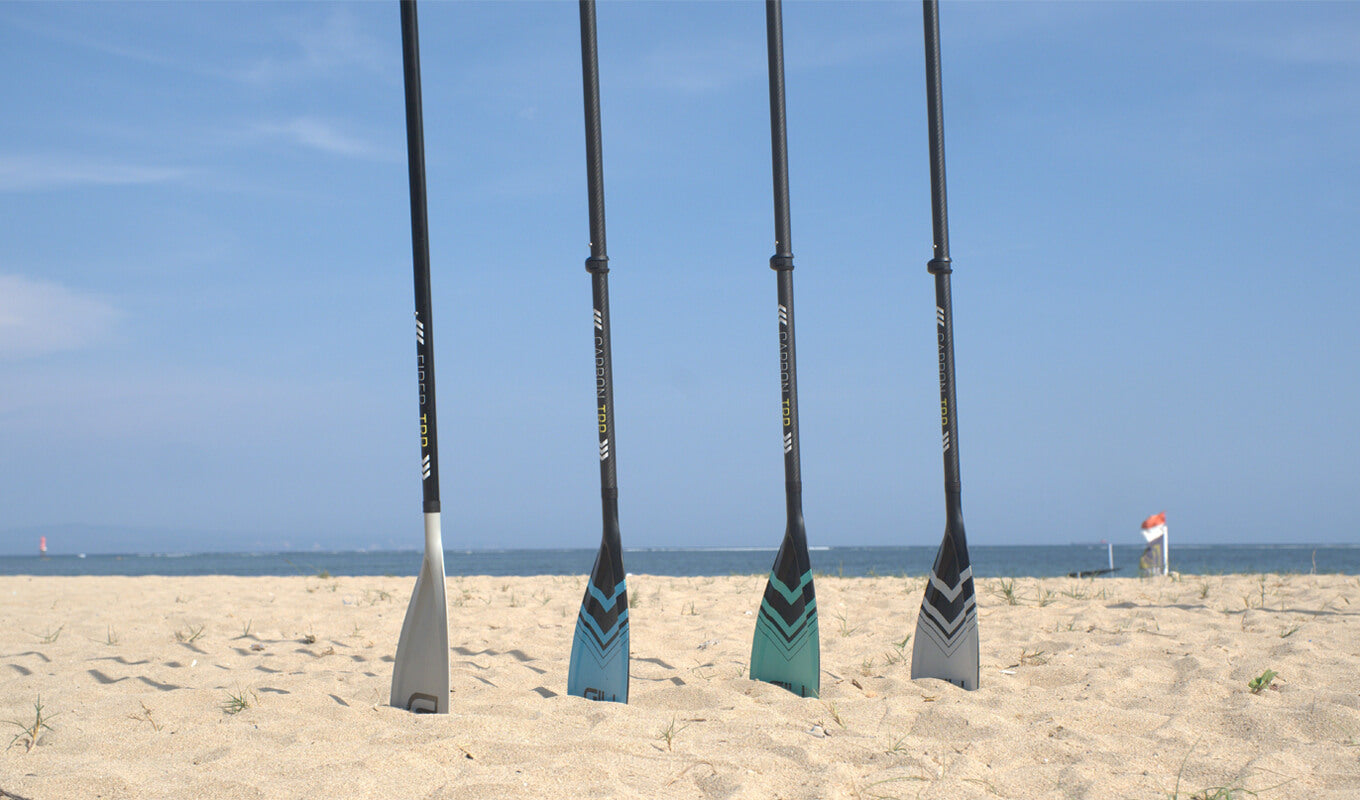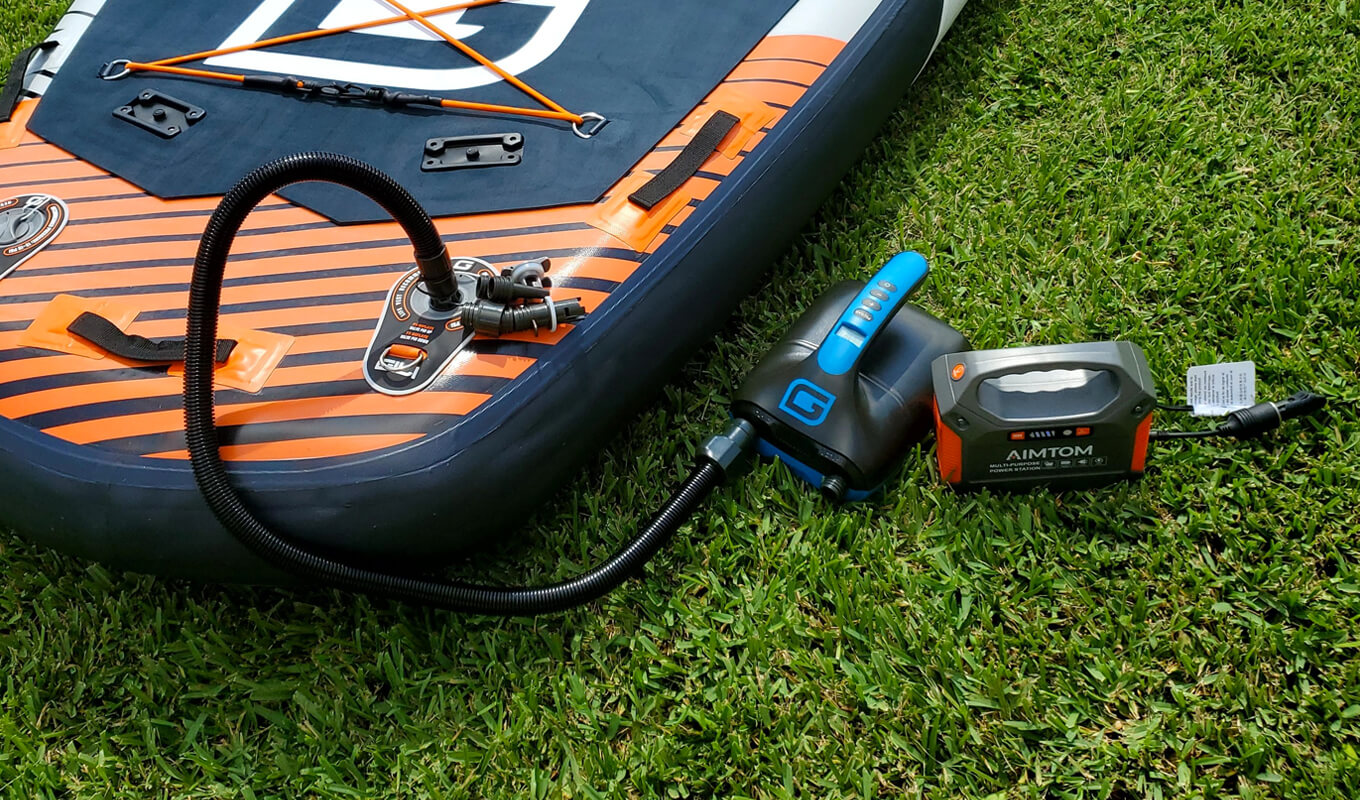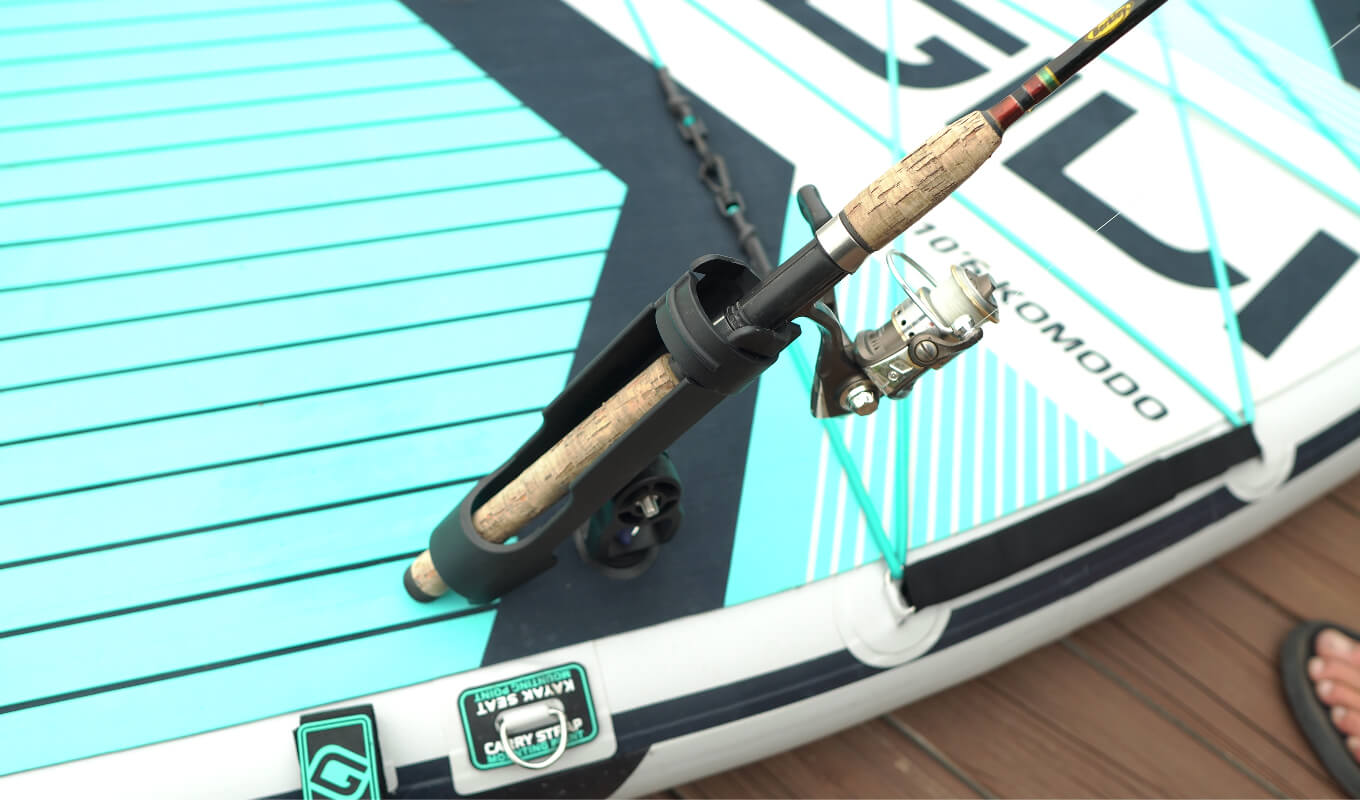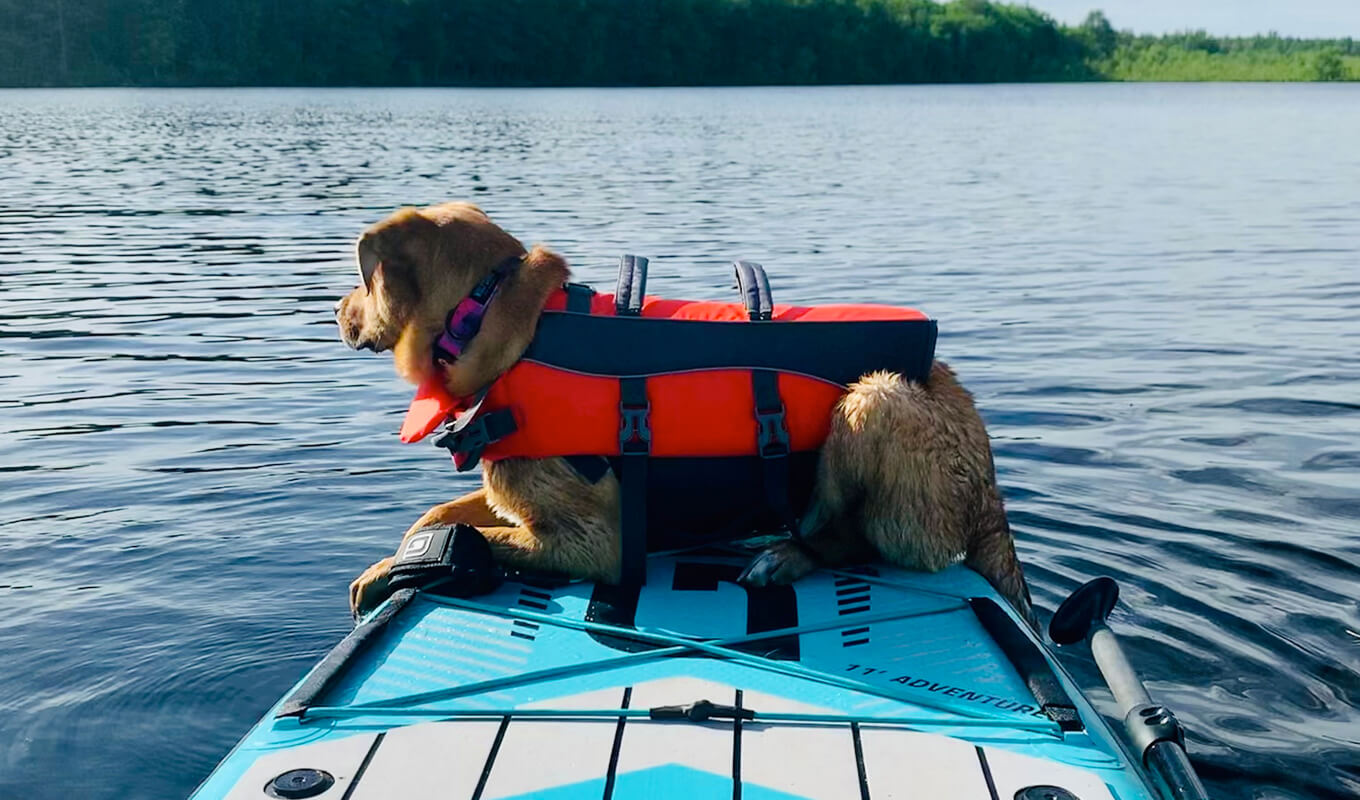Your Cart is Empty
FREE SHIPPING ON ORDERS OVER £39.99
FREE SHIPPING ON ORDERS OVER £39.99


Interested in stand up paddle boarding but not sure how much gear you actually need to get started? You’re not alone.
Millions of people continue to turn to the stand up paddle board — affectionately known as a SUP — for a sense of adventure on their favorite body of water, in addition to the aerobic activity that comes with it. And over the years, they’ve figured out that while you can simply take to the water with a board and paddle, there is a handful of other gear that helps make the experience safer and more enjoyable.
That includes GILI Sports, where you can find boards and paddles, but also lots of great accessories.
Let’s dive right into the gear!
The following gear is what you absolutely need to not only enjoy the sport of stand up paddle boarding, but do so safely.

We’ll start with the most obvious piece of equipment — a board! Of course, knowing you need a board is the easy part. Picking one out that’s best for you is a little more challenging.
There are two main types of stand-up paddle boards: Hard boards and inflatable boards. Inflatables are more durable and portable, while hard boards have historically offered better performance on the water.
Paddle board consumers have recently shifted more in favor of inflatables because of that durability, but also because better materials and construction technology has improved the overall performance of those boards. For beginners, buying an inflatable board is a no brainer.
We recommend one of two inflatable models:

SUP newbies put a lot of time and deliberation into their board and tend to overlook the paddle. You need to remember, though, that the paddle is the motor for your board. It needs to perform well on the water and be a comfortable fit for you.
There are a couple of factors you need to determine when shopping for your first paddle.
An effective SUP paddle needs to be 6 to 8 inches taller than your height. Most paddles on the market today, including all paddle models sold by GILI Sports, are adjustable, which should be good enough for a majority of paddlers. People who are shorter or taller than average may need to shop for a more specific size that fits their frame.
The material of the paddle dictates its weight, which, in return, dictates how fast you can potentially paddle. An aluminum paddle, for instance, is lightweight, but not it’s not as light or as strong as fiberglass or carbon fiber. Of course, paddles made using more premium materials come with bigger price tags. If you’re new to paddle boarding, you’ll need to determine what your budget is and let that dictate which paddle you ultimately decide to purchase.

Since chances are high you’re going to purchase an inflatable SUP, you’re going to need something to blow it up. Spoiler: you can’t blow up a board with your mouth and lungs!
There are two main options for air pumps — a manual pump, which commonly is packaged with inflatable paddle boards, and electric pumps.
Manual pumps are popular because they often are included with your paddle board and if they’re not, they’re pretty cheap to purchase. The downside, obviously, is that you need to manually pump it like you would a bike tire, except it takes a lot longer. By the time you’re done filling up your board, expect your arms to be tired.
Many electric pumps are powered via the 12-volt outlet (cigarette lighter) in your vehicle, making inflation a cinch while on the go. Most electric pumps can fill up your board to the suggested 12-18 psi in about 20 minutes or less. The only con with electric pumps is that they’re considerably more expensive than a manual pump.
While stand up paddle boarding is a ton of fun, safety is critically important. That means you need to invest in a quality life jacket or personal flotation device that fits you comfortably — even if you’re an experienced swimmer.
Life jackets get a bad rap with paddlers because they can hinder your rowing stroke. But there are several models on the market, like the ONYX MoreVent, that are designed for the athletic movements of paddle boarding.
There are even more small-profile PFDs, like the Onyx Belt Pack Manual Inflatable Life Jacket, that rests around your waist and only inflates when you trigger it, in the event of falling into rough waters.
If you went out on the water with nothing else but what’s listed above, you can enjoy a nice paddle without worrying too much.
But if you plan to make a hobby out of this sport, there are several other items you want to have with you.

When you’re out on the water, there’s no shade from the sun but the clouds in the sky. In other words, you need to protect your skin from the dangers of soaking in too much sun. It’s always a good idea to have the following sun protection gear on hand:
It’s always a good idea to bring your smartphone and an ID with you when you’re out paddle boarding, but it would be absolutely awful if you dropped either of those items into the water. That’s why you need a waterproof dry bag.
The best option is the GILI Waterproof Waist Pack dry bag, which comes as a two-pack for a very reasonable price. One pouch can hold a small wallet and a cell phone. The pack features a triple-lock seal to ensure no water makes its way into the bag. If tied snugly around your waist, you won’t have to worry about losing your bag if you happen to fall into the water.
If you’re going out for a longer excursion, you’re definitely going to want a water bottle and some snacks to hold you over until your return to shore. Paddling under the hot sun for an extended period of time can be exhausting — especially for beginners. You’ll want at least 20 ounces of fresh water with you, in addition to some high-protein snacks, like nuts or beef jerky.
Bugs typically aren’t a problem when paddle boarding on the ocean, but they can become a nuisance on lakes. Make sure to spray on some bug repellant so you can focus on paddling and less on swatting away mosquitoes.
A whistle is an affordable, lightweight safety device you can wear around your neck in case you find yourself in danger on the water.

Sometimes it’s not as easy as throwing on a bathing suit and heading out on the water. Here are some SUP clothing suggestions, many of which are dependent on current weather conditions.
For hot days with minimal wind, men can go with swim trunks and women can choose between a bikini or one-piece suit. Some women prefer a bikini because it allows for a greater range of motion when rowing, but any suit that’s comfortable for you will get the job done — and allow you to jump into the water to cool off!
A rash guard not only protects you from the sun, but can also keep you warm on cooler days. Women often pair a rash guard with bikini bottoms; men wear them with swim trunks or board shorts.
For even chillier days, many paddle boarders prefer to wear a wetsuit. Many women prefer wetsuits that cover their thighs, but there are options on the market for full-length suits.
The warmth of a wetsuit really comes in handy in the event you fall off your board. In lake towns, the wetsuit is most common in the early spring and in the fall when outside temperatures can dip into the 40s.
While many paddle boarders take to the water barefoot, a good pair of water shoes can actually protect your feet and give you added traction on the board to prevent falls. Water shoes not only protect your feet from sunburns, but they also allow you to walk on rockier beaches, lakes and rivers as you prepare to mount on your paddle board.
Look for a pair that’s light and that includes a good drainage system.
If you’re paddling on the water, you absolutely need a hat. A good hat protects your head, neck and face from the sun, which ultimately allows you to be on the water longer since your energy won’t be as drained. When shopping for a paddle board hat, find something that provides full coverage and is floatable, in addition to having ventilation — mesh is a great option!
You can pick from two styles: a baseball cap-style or more of a fishing/bucket-style hat. Many prefer the fishing style hat because they tend to be floatable and include a chin strap so if the wind blows it off, it’ll stay wrapped around your neck.
As paddle boarding has increased in popularity, so have the number of accessories that can make your excursions more comfortable and efficient. It seems like we’re adding accessories to our shop every day!

An absolute essential for stand-up paddle board yogis and fishermen, an anchor can keep your board stable while you unwind on the water. Finding the perfect anchor, though, is a bit of a balancing act. You need something heavy enough to do its job — anchor your board! But you also need something that’s compact and light enough so it’s easy to haul out to where you plan on anchoring your board.
Our paddle board anchor weighs in at 3.5lbs, which is the perfect weight. It features a four-fluke design that folds up, making it compact enough to fit inside your wet bag.
One of the worst parts about stand up paddle boards is how difficult they are to carry (when inflated) from your car to the water. They’re big and awkward, but a good SUP carry strap can totally simplify your life.
Our SUP carry strap easily clips to your board’s D-rings for easy transportation.
Other straps, like this one found on Amazon, wrap around your board and then have an additional strap that you can throw over your shoulder. The two straps can also help you carry your paddle and any other accessories you may be bringing with you. Expect to pay between $20 and $30.
If you have to walk a long distance from your vehicle (or home) to your favorite paddle boarding spot, look for a strap with a shoulder pad.
An alternative option is a SUP cart, which rolls on the ground as you pull it.

If you plan on fishing off your paddle board, you will greatly appreciate having a fishing rod holder. You don’t want to risk having your rod fall into the water!
Our fishing pole holder mounts to our paddle boards in seconds and is completely adjustable, allowing you to dial in the perfect angle and do some trolling. A built-in locking mechanism keeps your reel sturdy in case a big one latches on to your bait and hook.
Looking to capture some great footage from your paddle board? You’ll need our super-affordable Go-Pro adapter that mounts to the front of your board. It comes in three different colors and is completely adjustable so you can easily capture footage of the water or of yourself paddling.
Who doesn’t love jamming out to some tunes while soaking up the sun on a paddle board? Of course, you need a waterproof speaker in the event your board flips. We also recommend a speaker with some kind of lanyard, so that you can secure it to your board.
Be careful when shopping because you’re going to see two types of speakers: waterproof and water-resistant. A water-resistant speaker can handle the spray from your paddle or some light rain, but can’t be submerged into the water. A waterproof speaker, on the other hand, can go under the surface of water a specific distance and still function properly,
You don’t want to lose your sunglasses when out on your board. You can either purchase sunglasses that float or buy a floating sunglass retainer that attaches to the temple of your sunglasses, like this option from Atollas.
If you’re traveling really any distance and don’t own an inflatable paddle board, you’ll want a SUP roof rack to transport your board. The good news is you have plenty of options — whether you currently have a roof rack or not.
Look for a roof rack kit that includes soft, scratch-resistant straps so it won’t damage your vehicle. This option from Amazon is perfect for most SUPs.

More paddlers are bringing their furry best friend with them on the water, which means they need a personal floatation device for them. Our dog life jacket PFD comes in six different sizes to accommodate the smallest and biggest of pups.
We included a zipper where you can store your dog’s contact information in case he or she wanders off while wearing the PFD.
Use this stand up paddle board gear checklist before your next excursion on the water.
GILI Sports is committed to providing you with the best paddle boarding experience — and that starts with educating you on the right gear you need to enjoy your time on the water. Use this guide to load up on the essentials and those fun add-ons that can make your next trip extra memorable.
Comments will be approved before showing up.